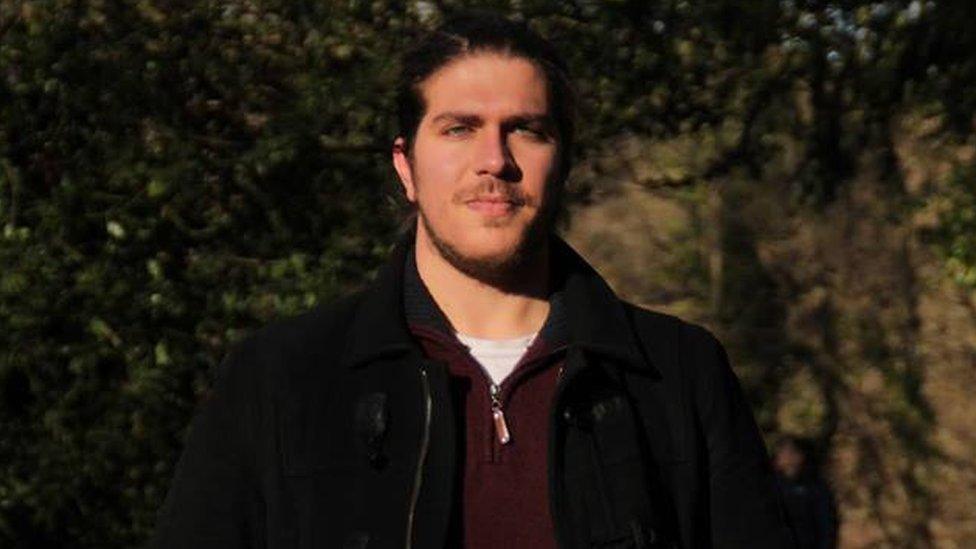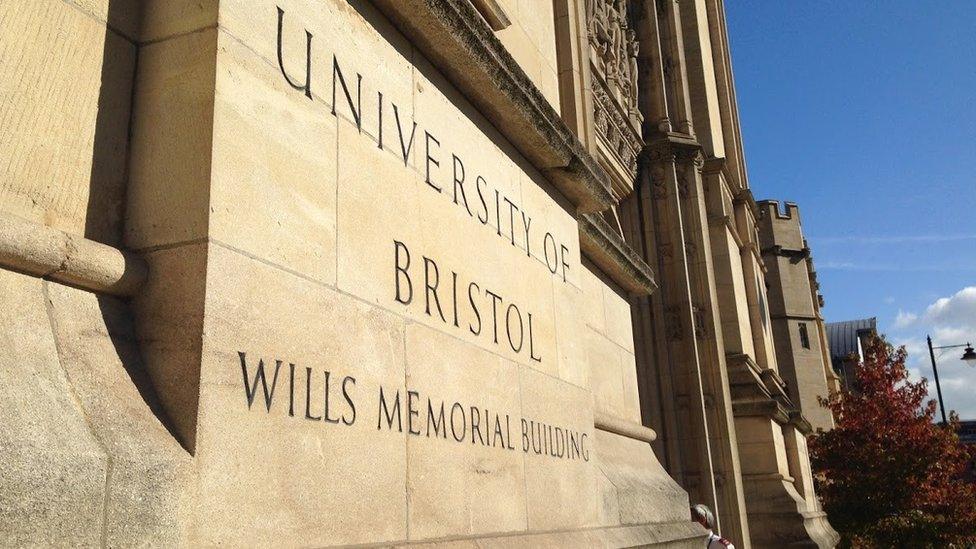'Trans row' student banned from free speech debate
- Published

Angelos Sofocleous has been told he cannot take part in the debate due to "security concerns"
A student, whose tweet that "women don't have penises" led to a transphobic row, has been banned from taking part in a debate about free speech at the University of Bristol.
Angelos Sofocleous, a Durham University student, cannot take part in the Free Speech Society event due to "security concerns".
The society said the student union had banned him from the panel discussion.
The union said it was "committed" to free speech but security was needed.
Mr Sofocleous was sacked from his post as assistant editor at Durham University's philosophy society's journal last August after he tweeted comments deemed by some people to be transphobic.
He wrote: "RT [retweet] if women don't have penises", linked to an article in The Spectator on the same subject, and later defended his views.
Allow X content?
This article contains content provided by X. We ask for your permission before anything is loaded, as they may be using cookies and other technologies. You may want to read X’s cookie policy, external and privacy policy, external before accepting. To view this content choose ‘accept and continue’.
A discussion panel asking "is there a problem with free speech on campus?" is due to take place at the university on Wednesday.
Mr Sofocleous tweeted he had been "de-platformed" from the debate due to concerns "my presence might spark protests which might lead to physical violence".
He wrote "nothing could provide a more ironic indication of the current status of social justice orthodoxy in academia than banning a speaker from an event titled 'free speech on campus'."
Allow X content?
This article contains content provided by X. We ask for your permission before anything is loaded, as they may be using cookies and other technologies. You may want to read X’s cookie policy, external and privacy policy, external before accepting. To view this content choose ‘accept and continue’.
The university's free speech society said it had been told by the student union "in order to hold the event as scheduled we must disinvite him as a panellist" due to his presence on campus being a "high risk".
The society said: "The university security services informed us that they were not at all consulted by the students union on the matter."

The Student Union said it was "committed" to free speech
A spokesman said the society was "severely disappointed" by the "last-minute decision", and felt "let down by the unnecessary bureaucracy of the student union and its disregard for free speech".
The student union said it had "not refused Angelos Sofocleous as a speaker" and was "committed to freedom of speech and the rights of all our students to discuss difficult and sensitive topics"
A spokesperson added: "Bristol SU and the University of Bristol have a joint external speakers procedure, which applies to all bookings and events.
"Bristol SU made an initial assessment of the speaker and recommended that security would be needed to ensure this event could run safely and smoothly.
"The Freedom of Speech Society was informed of this one week prior to the event with the recommendation that the event is rearranged in order to allow security measures to be put in place and the event to go ahead."